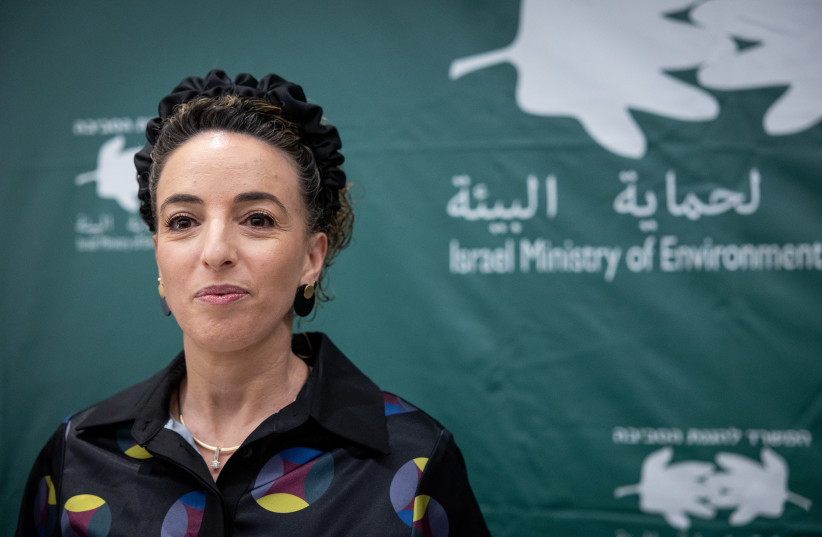Israel's Environmental Protection Ministry has transferred around NIS 32 million to local municipalities across the country to help develop preparations for the climate crisis and find ways of bringing more shade in public areas.
New Environmental Protection Minister Idit Silman heralded this as the start of a new era.
"The local municipalities are the ministry's arm in the fight to protect the environment."
Idit Silman
"The local municipalities are the ministry's arm in the fight to protect the environment," she said, adding that they see an obligation to strengthen local authorities and give them the resources they need.
"Through our support, local municipalities will help bring about significant change in the fight against climate change, and we will strengthen the relationship between them and the Environmental Protection Ministry," Silman added.

What is Israel's Environmental Protection Ministry doing to help municipalities fight climate change?
The ministry is providing NIS 10.5 million to help plan ways of preparing for the health, environmental and economic damages of climate change, of which NIS 7.5 million is meant for Israel's Arab sector; NIS 6.3 million to prepare plans for green areas in urban environments; and NIS 15 million for running pilot programs to plant trees in specific areas.
Regarding the first point, the NIS 10.5 million will be allocated between 39 different municipalities, including 25 from the Arab sector. These municipalities include, but are not limited to:
- Eilat
- Nazareth
- Sakhnin
- Kafr Kana
- Kafr Kara
- Umm el-Fahm
- Acre
- Ness Ziona
- Hadera
- Herzliya
- Beersheba
- Kalansuwa
- Rahat
- Daliat al-Carmel
- Rehovot
- Hod Hasharon
- Ramat Hasharon
- Beitar Illit
- Petah Tikva
- Rishon Lezion
- Nahariya
- Rosh Ha'ayin
Plans will also be prepared for nine different Bedouin localities in the South.
This is important as the damages that could be caused by the climate crisis can put a severe strain on preexisting systems and hamper municipal services and responses to emergencies.
Risks could include more fires, intense rainfall overwhelming drainage and sewage systems, lack of trees and artificial shading and more.
Efforts will also be made to raise awareness about the damages of climate change, especially among Arab sector localities.
Another important step will be in creating more shade in public as well as reducing greenhouse gas emissions and transitioning to clean energy.
Shading is where the NIS 6.3 million comes in, as it is being allocated to help promote shading by planting more trees in Israeli cities. To do this, the Environmental Protection Ministry has called on local authorities to start planning pilots for this.
A total of 18 different municipalities will receive this funding, including Haifa, Jerusalem, Holon, Bnei Brak and Ashdod.
The last NIS 15 million will also go towards shading and is being transferred to 14 different municipalities. This will see trees planted in selected streets in these cities with the goal of providing more shade.
The first act of Israel's new minister
The announcement comes right after Silman took over the post of environmental protection minister following the swearing-in of Israel's new government, replacing previous minister Tamar Zandberg.
It also comes as Israel's Energy Ministry announced plans to launch a national research institute on energy storage, with the goal of helping transition Israel to zero greenhouse gas emissions by 2050.
This reflects the growing concern among officials regarding climate change, which continues to progress worldwide.
The Environment and Climate Change portal is produced in cooperation with the Goldman Sonnenfeldt School of Sustainability and Climate Change at Ben-Gurion University of the Negev. The Jerusalem Post maintains all editorial decisions related to the content.
